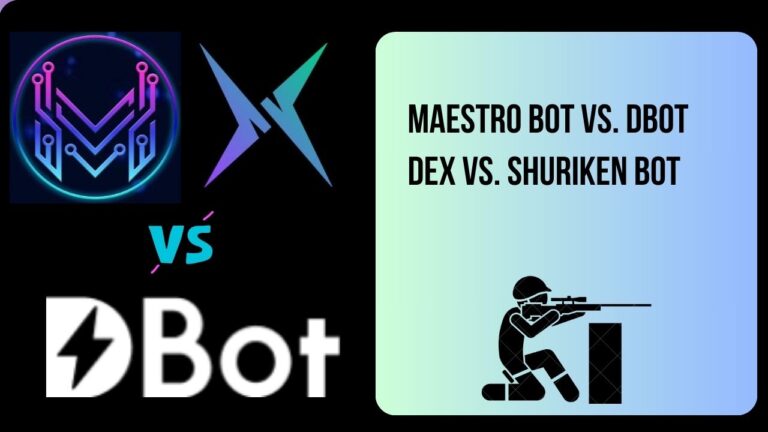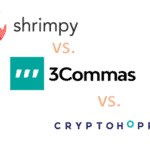In 2025, Bitcoin remains the dominant cryptocurrency in both adoption and brand recognition. But one thing it doesn’t offer — and never truly has — is privacy.
As blockchain surveillance becomes more advanced and regulatory pressure grows, even casual users are beginning to rethink how visible their transactions are. More and more people are turning to exchange btc to xmr services to regain control over their financial footprint — no registration, no KYC, just a direct swap.
Whether it’s to move funds quietly, donate anonymously, or simply avoid leaving a permanent financial trail, bitcoin to monero conversions are happening more frequently — and for increasingly everyday reasons.
Table of Contents
Why Bitcoin’s Transparency No Longer Works for Everyone
Bitcoin was never built to be fully anonymous — only pseudonymous. Every transaction you make, every address you use, and every balance you hold becomes part of a permanent, publicly searchable ledger.
In the early days, this wasn’t much of a concern. But today, entire industries have formed around deanonymizing blockchain activity. Governments, advertisers, exchanges, and analytics firms can often tie BTC addresses to real identities with alarming accuracy.
For users who value control over their own data, this level of exposure has become a problem. That’s where Monero comes in.
Monero: Privacy by Design
Monero (XMR) isn’t just a “private version of Bitcoin” — it was designed from the ground up with confidentiality as its default. While Bitcoin relies on open, traceable transactions, Monero uses stealth addresses, ring signatures, and confidential amounts to completely obscure the sender, receiver, and value of every transfer.
Unlike many so-called “privacy coins,” Monero doesn’t make privacy optional — it makes it automatic.
This has made XMR the go-to choice for those seeking financial discretion. But it’s not about “hiding” — it’s about protecting normal behavior from constant scrutiny. Salary payments, charitable donations, even splitting bills among friends — all become more secure when there’s no public record of the details.
For anyone who’s ever typed “btc to monero” into a search bar out of curiosity or concern, the appeal is obvious: Monero offers something Bitcoin can’t — plausible deniability at the protocol level.
How BTC to XMR Exchanges Work in Practice
Moving from Bitcoin to Monero doesn’t require a trading account or a background in cryptography. In 2025, the process is surprisingly accessible — especially through services that don’t require sign-ups or verification.
The general idea is simple: you send BTC to an address generated by the platform, and in return, you receive XMR in your wallet. The platform acts as an intermediary, calculating the btc to xmr rate at the time of exchange and performing the swap automatically.
Because Monero operates on a different privacy-focused protocol, the final leg of the process — when XMR is sent to your wallet — becomes invisible to the public blockchain. From that point on, no one but you can see where the funds went, how much was sent, or to whom.
This is why btc to xmr exchange tools have become a natural bridge for people looking to exit the public eye of the Bitcoin network, even if temporarily.
What to Consider Before Making the Swap
While exchanging btc to xmr is straightforward in technical terms, it’s worth approaching the process with care — especially when privacy is your priority.
Timing can matter. Since the btc to xmr ratio fluctuates with the market, waiting even a few hours can sometimes result in a noticeably different outcome. Most platforms offer real-time quotes, but they may expire quickly due to Bitcoin’s volatility.
It’s also important to remember that Monero transactions are irreversible and untraceable. Once your XMR leaves the platform and lands in your wallet, there’s no way to verify or reverse the transfer externally. This is part of the appeal — but it also puts the responsibility squarely on the user to double-check addresses and amounts.
Lastly, make sure your wallet is compatible. Some lightweight or mobile wallets don’t support all of Monero’s privacy features or may not display incoming transactions immediately due to delayed scanning.
None of these points are dealbreakers — but they’re good reminders that privacy, while powerful, often requires a more thoughtful approach.
Want to See the Process in Action?
For those who prefer seeing a real example before making a transaction, the How to exchange BITCOIN video offers a clear demonstration of how the swap works from start to finish.
The interface shown may differ slightly depending on the platform you choose, but the basic logic — sending BTC and receiving XMR without registration — remains the same. It’s a useful reference, especially if it’s your first time converting bitcoin to monero or if you want to confirm what the flow looks like before committing funds.
Who Benefits from BTC to XMR Swaps — and Why
As the cryptocurrency landscape matures, it’s clear that one-size-fits-all solutions no longer work. While Bitcoin remains the most widely held and traded digital asset, its public-by-default nature doesn’t suit every situation. Whether you’re managing sensitive payments, safeguarding personal savings, or simply minimizing your on-chain visibility, Bitcoin’s transparency can feel limiting.
That’s why btc to xmr swap platforms have become a practical alternative for users seeking more control over their data. Without the need for accounts, verifications, or third-party storage, these tools allow for fast and direct conversions between two fundamentally different types of assets: one designed for visibility, the other for privacy.
Importantly, using Monero isn’t about hiding — it’s about opting out of unnecessary exposure. In a world where digital trails are increasingly permanent, having the ability to make financial decisions without broadcasting them to the entire internet is a form of self-protection, not secrecy.
That said, XMR is not for everyone. Its lower liquidity, fewer integrations, and technical quirks may not suit casual users or those needing speed over discretion. But for those who want to manage their funds quietly, with minimal friction and no unnecessary disclosures, Monero still offers something rare in 2025: built-in privacy, delivered without asking questions.
If you’ve ever felt uneasy sending Bitcoin to someone knowing that the entire chain of custody is visible forever, btc to xmr exchange might be the next logical step — not as a rejection of transparency, but as a reclaiming of choice.










